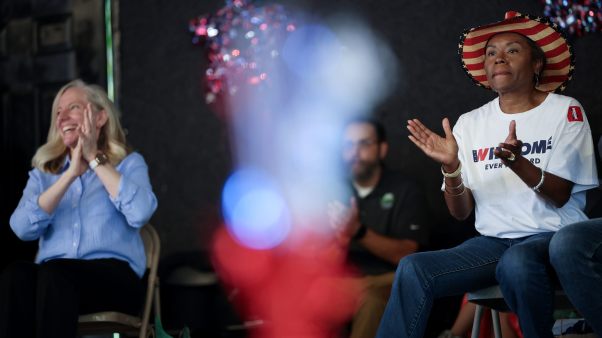“You said I would be married someday and have a family of my own, but when you said it, I was very skeptical.” This was the comment of a young man who a few minutes earlier had entered my office holding his chubby two-year-old daughter and had proudly introduced me to his lovely wife.
I recalled a day four years before when this man, then a sophomore in college, had sat nervously in my office for the first time, talking about his guilt feelings, fears, and anxieties because of a homosexual encounter and a sexual fantasy life that was primarily homosexual. At that time he was greatly confused and worried that someone would find out about him. He believed that in some way his problem was the result of some misdeeds in his youth. Several comments he had heard from the pulpit had led him to think that this was God’s judgment on man’s sinful preoccupations. And so he had resolved to live with his dark secret and hope that no one would ever find out about the chaos within him. If ever he were to discuss his problem, he thought, it could not be with a fellow Christian, because somehow this all fell into the category “most sinful,” almost unspeakable. For some of his Christian friends, it appeared to be the ultimate form of human depravity.
This young man—let’s call him John—had generated enough courage to see me, a clinical psychologist and teacher in a Christian college, because he had read in a Christian periodical that homosexuals could be helped. During our initial interview he showed me a letter from a New York agency that had been overwhelmed with inquiries—in fact, was considering a mimeographed letter of response—because this article had mentioned it by name. The letter also expressed much understanding for him and his problem and suggested that he seek professional counsel near his home. This gave him enough courage to come to me.
The immediate, burning question that occupied John’s thoughts was: “Is there anything that can be done to help?” When I told him that there was, and that many persons had been able to resolve their problems to the point where they could live normal, heterosexual lives, an obvious sense of relief passed over him. He settled back in his chair, ready to begin what was to be an extended psychotherapeutic encounter lasting over a year.
John’s eagerness to change was, from a diagnostic point of view, a good indication of eventual success. His Christian world-life view heightened his sensitivity to the distortion in this way of life and kept him from passively accepting his “fate” and from becoming involved in one homosexual encounter after another. Without a strong, sustained motivation to change, the potential for help is poor.
My ability to empathize with this young man was based in part on my understanding of the causes of the problem and in part on the fact that we both were human. I could accept his humanness, recognizing that though his problems and mine were not the same, as human beings we both were searching for solutions to the problems of life. I had to empathize with the deep distress and guilt torturing him and to suffer with him as he disclosed his years of lonely struggle with his problem. Locking this secret inside a sensitive, developing adolescent had caused a myriad of frightening fantasies and constant self-renunciation.
In time we began to unravel and reweave the developmental fabric that had produced the problem. Most cases of homosexuality are the products of psychological developmental twists in which a child identifies with the parent of the opposite sex, causing confusion of sexual identity.
John told numerous stories about his mother and her continual efforts to alienate him from his father. She, not finding her husband the source of love and tenderness she had hoped for, found affection and vicarious satisfaction in her son. She frequently told him how earthy and cruel his father was and heaped praise on John for his interests in music, art, and domestic involvement. John also became an object to be used in the game of family politics. In the frequent arguments, he could be counted on to side with his mother against his father and younger brother.
In general, his mother’s world became his, and he had little support apart from her. When his sex drive began to develop, his role confusion became painfully obvious. Instead of normal heterosexual fantasies, his were about men and certain masculine objects.
As the therapy progressed, John began to see himself in relation to his mother and the unhappy marriage. He began to resist his mother’s control and to express some of the hostility he felt. And he began to talk to his father and realize that he wasn’t the “clod” his mother had pictured him to be. His father was pleased to have some contact with this son who had always been estranged from him.
One day John came to a session very excited and quickly told me about an incident that had occurred at the breakfast table. His mother and father were having an argument, and he for the first time supported his father. His mother, in the heat of battle, slapped him across the face. He recalled the experience with deep emotion and enthusiasm and said he felt the umbilical cord was broken. Although this was only one step in the tedious therapeutic encounter, it was a significant one.
The pastor usually does not have the training or time to be of therapeutic help to those suffering from sexual deviations. Still, he can be a source of understanding, both in the pulpit and in the study. He can be a good listener and can offer hope and support in the struggle for a sexual identity. The counselee needs to know that God understands all man’s human frailties and cares beyond measure. Often, guilt is an integral part of this neurosis, and the pastor should meet this with a spirit of understanding and forgiveness, symbolizing God’s grace on man’s behalf. One other task of the pastor is to direct the troubled person to a competent therapist. A professional psychiatrist, clinical psychologist, or social worker sensitive to the person’s Christian motivations should be a ready source of help.
—Dr. J. R. DOLBY, associate professor of psychology, Baylor University, Waco, Texas.










